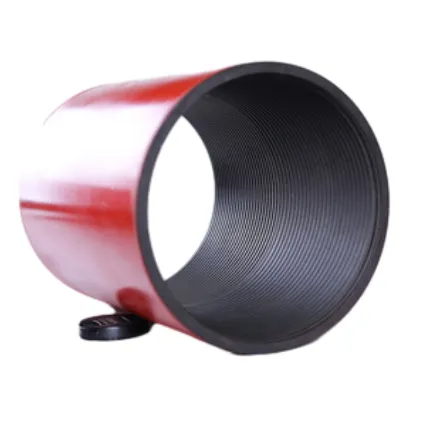- Afrikaans
- Albanian
- Amharic
- Arabic
- Armenian
- Azerbaijani
- Basque
- Belarusian
- Bengali
- Bosnian
- Bulgarian
- Catalan
- Cebuano
- Corsican
- Croatian
- Czech
- Danish
- Dutch
- English
- Esperanto
- Estonian
- Finnish
- French
- Frisian
- Galician
- Georgian
- German
- Greek
- Gujarati
- Haitian Creole
- hausa
- hawaiian
- Hebrew
- Hindi
- Miao
- Hungarian
- Icelandic
- igbo
- Indonesian
- irish
- Italian
- Japanese
- Javanese
- Kannada
- kazakh
- Khmer
- Rwandese
- Korean
- Kurdish
- Kyrgyz
- Lao
- Latin
- Latvian
- Lithuanian
- Luxembourgish
- Macedonian
- Malgashi
- Malay
- Malayalam
- Maltese
- Maori
- Marathi
- Mongolian
- Myanmar
- Nepali
- Norwegian
- Norwegian
- Occitan
- Pashto
- Persian
- Polish
- Portuguese
- Punjabi
- Romanian
- Russian
- Samoan
- Scottish Gaelic
- Serbian
- Sesotho
- Shona
- Sindhi
- Sinhala
- Slovak
- Slovenian
- Somali
- Spanish
- Sundanese
- Swahili
- Swedish
- Tagalog
- Tajik
- Tamil
- Tatar
- Telugu
- Thai
- Turkish
- Turkmen
- Ukrainian
- Urdu
- Uighur
- Uzbek
- Vietnamese
- Welsh
- Bantu
- Yiddish
- Yoruba
- Zulu
Tubing coupling plays a significant role in the chemical industry
In the modern chemical industry, the efficient operation and safety of equipment are key factors in ensuring smooth production. In this process, the selection of pipeline connectors is extremely important, among which tubing coupling, as a basic connecting device, plays an indispensable role. This article will explore the importance and application of tubing coupling in the chemical industry.

The basic function of tubing coupling is to connect two sections of pipes to ensure smooth transmission of liquids or gases
In chemical production, the flow of various chemical substances is involved, including corrosive, flammable, and high-temperature and high-pressure liquids and gases, which require extremely high performance of the connecting components. Steel pipe couplings must have excellent corrosion resistance and pressure resistance to meet the needs of chemical enterprises for safe, stable, and long-lasting operation. In addition, appropriate connector selection can help reduce the risk of leakage and improve the overall efficiency of the system.
The design and material selection of tubing coupling are of great significance in the chemical industry
Common connector materials in the market include stainless steel, carbon steel, and polymers, which are suitable for different working environments due to their different physical and chemical properties. For example, in chemical reactions involving strong acids or bases, the use of corrosion-resistant stainless steel connectors can effectively prevent material degradation and extend equipment service life. In addition, with the development of technology, more and more high-performance composite materials are being applied in the manufacturing of steel couplings, which not only improves the strength of connectors but also reduces weight, helping to optimize pipeline structure design.
In practical applications, tubing coupling is also widely used for maintenance and upgrading of chemical equipment
Many chemical industries need to renovate their existing pipeline systems during technological reforms and equipment updates, and the flexibility and disassembly of tubing couplings make this process more convenient. By replacing or reconfiguring appropriate connectors, enterprises can quickly adjust their production processes to adapt to changes in market demand, improving production flexibility and response speed.
Although tubing coupling has many advantages in the chemical industry, improper design and use may still lead to safety hazards
For example, unqualified connectors may cause sealing failure due to material fatigue or improper construction, leading to serious accidents such as leakage and explosion. Therefore, when choosing stainless steel couplings, enterprises should pay attention to selecting products that have undergone strict inspection and certification, and ensure that the installation and maintenance process is carried out by professionals to reduce safety risks.
In summary, SS pipe coupling plays a significant role in the chemical industry. Its superior connection performance, diverse material selection, and flexibility in system modification make it an indispensable component of chemical equipment. In the future, with the continuous advancement of materials science and connection technology, tubing coupling will continue to play a more important role in the development of the chemical industry, contributing to the promotion of safety, environmental protection, and efficient production in the entire industry.
-
Tubing Crossover - API Compatible, Custom Sizes, In StockNewsNov.10,2025
-
Tubing Coupling | High-Strength, Leak-Proof Steel CouplingsNewsNov.10,2025
-
Wholesale API Threading Casing Coupling | API 5CT, Fast ShipNewsNov.10,2025
-
Pup Joint Supplier | API Certified, Custom, Quick ShipNewsNov.10,2025
-
Pup Joint Manufacturers | Precision Machined, Fast DeliveryNewsNov.10,2025
-
Tubing Coupling | Precision Steel, Leak-Proof, Fast DeliveryNewsNov.03,2025







